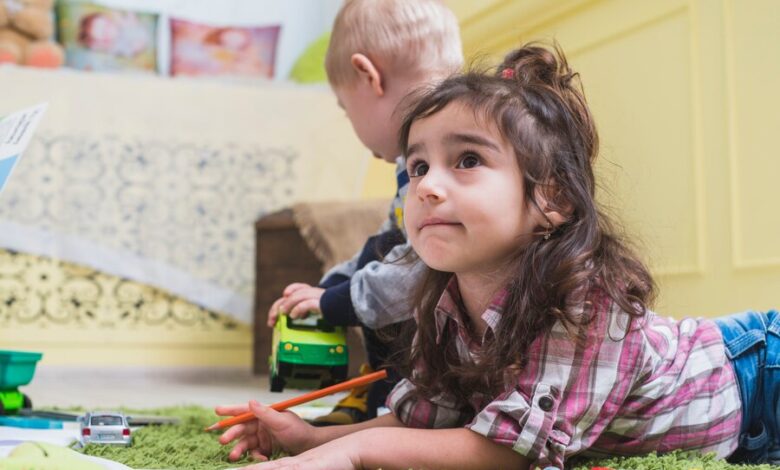Understanding the Characteristics of Social Development in Early Childhood

Social development lays the foundation for a child’s ability to build relationships, communicate effectively, and develop a sense of self. It plays a vital role in shaping how children interact with the world, handle emotions, and thrive in both educational and social settings. For educators, parents, and child development experts, understanding the key characteristics of social development is crucial to fostering environments that nurture these essential skills.
This guide will explore the core aspects of social development, their impact on learning, the role of technology, challenges in social growth, and what lies ahead in child development research.
Why Social Development Matters in Early Childhood
Social development refers to the process by which children learn to interact with others, regulate their emotions, and adapt to social norms. For young children, this development begins with family interactions and gradually extends to peer groups, teachers, and wider social networks.
Why is this important? Social development helps children to:
- Build healthy relationships through effective communication.
- Develop resilience and adaptability to different environments.
- Cultivate empathy and understand others’ perspectives.
When children are supported in their social development, they’re not only better equipped for academic success but also for thriving in life.
Key Characteristics of Social Development
Understanding the characteristics of social development gives parents, educators, and experts concrete ways to nurture these skills. Below are the foundational elements of social growth in children.
1. Emotional Regulation and Empathy
Emotional Regulation
Children with strong emotional regulation can manage their feelings, whether it’s dealing with disappointment or controlling impulses. It includes the ability to:
- Recognize emotions in oneself and others (e.g., anger, happiness, sadness).
- Use strategies like deep breathing when upset.
Tip for Parents: Encourage children to use words to express their emotions, such as saying, “I feel frustrated,” instead of acting out.
Empathy
Empathy is the capacity to understand and feel others’ emotions. For example, if a classmate is crying, empathetic children might offer comfort. Early signs of empathy appear when toddlers imitate the emotions of those around them.
For Educators: Use storytelling or role-playing to encourage children to think about others’ feelings. Asking, “How do you think they felt during that story?” can spark meaningful discussions.
2. Social Skills and Peer Interaction
Social skills refer to the ability to cooperate, share, and respect others’ boundaries. Peer interaction, in particular, teaches children teamwork and conflict resolution.
Key examples include:
- Taking turns during activities.
- Expressing needs without aggression.
- Resolving disagreements peacefully.
Parents and educators can foster these skills by encouraging group games, which teach collaboration while building bonds.
3. Self-Identity and Self-Concept
Children start forming their self-identity as they recognize their uniqueness in terms of gender, culture, and personality. Self-concept refers to how children view themselves, influencing their confidence and decision-making.
This characteristic is crucial for social development because children who feel secure in their identity are more likely to form positive relationships and handle challenges with confidence.
Support self-identity by celebrating cultural diversity and teaching children to value their strengths.
How Social Development Affects Learning
Social development doesn’t occur in isolation—it profoundly impacts a child’s ability to learn and thrive in an educational setting.
For Educators
Classrooms that support social growth help children feel connected, valued, and ready to engage.
Strategies to Foster Social Development in the Classroom:
- Group Activities and Projects: Activities like art collaborations allow children to share ideas and respect others’ input.
- Model Behavior: Teachers who model kindness, patience, and teamwork influence children to mirror those behaviors.
- Conflict Resolution Skills: Teaching kids how to resolve disagreements builds long-term resilience.
For Parents
A child’s home environment plays a significant role in cultivating social skills.
Tips to Enhance Social Skills at Home:
- Daily Conversations: Initiate dialogues that encourage your child to talk about their day and emotions.
- Playdates: Regular social exposure through play improves sharing and cooperative behavior.
- Teach Active Listening: Encourage children to focus on and respond appropriately to others when they speak.
When schools and homes work together, children develop the social and emotional skills needed to succeed academically and socially.
The Role of Technology in Social Development
The Positive Side
Technology, when used mindfully, supports social interactions in ways that weren’t possible before. Video calls, social learning apps, and educational games can encourage collaboration and worldwide connections.
Example: Apps like ClassDojo foster communication between teachers, students, and parents, enhancing community engagement within schools.
Challenges with Technology
Excessive screen time can limit real-world interactions and interfere with the development of in-person social skills. Balancing technology with face-to-face interactions is key.
Solution: Set screen-time limits and encourage hands-on activities like building forts, outdoor adventures, or team sports.
Challenges in Social Development
Social development isn’t without its hurdles. Recognizing and addressing these challenges can prevent long-term impacts.
Common Obstacles
- Bullying: Repeated social aggression, whether physical or emotional, can damage a child’s confidence.
- Social Anxiety: Some children struggle to engage due to fear of judgment or awkwardness.
How to Address These Issues
- Foster open communication where children feel safe sharing their experiences.
- Work with teachers or mental health professionals to build coping strategies for children facing significant challenges.
Empathy from significant adults in a child’s life makes all the difference in overcoming these difficulties.
What’s Next? Trends in Social Development Research
The field of child development is evolving rapidly, driven by innovations like artificial intelligence and neuroscience. Current trends in social development research include:
- Emotion-Sensing Technology: Apps to monitor children’s emotional states and recommend coping strategies.
- Mindfulness Training: Programs integrated into classrooms to teach stress management and self-awareness.
By staying informed, educators and parents can adapt their practices to support children in an increasingly complex social environment.
Fostering Social Development Creates Confident, Thriving Individuals
Social development in early childhood builds the foundation for a fulfilling, interactive, and successful life. Whether through fostering empathy, encouraging teamwork, or balancing technology use, parents, educators, and experts can create nurturing environments to support children in building these critical life skills.


